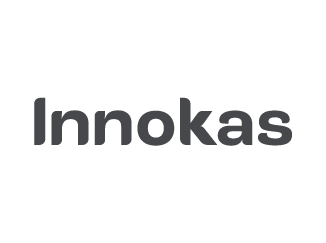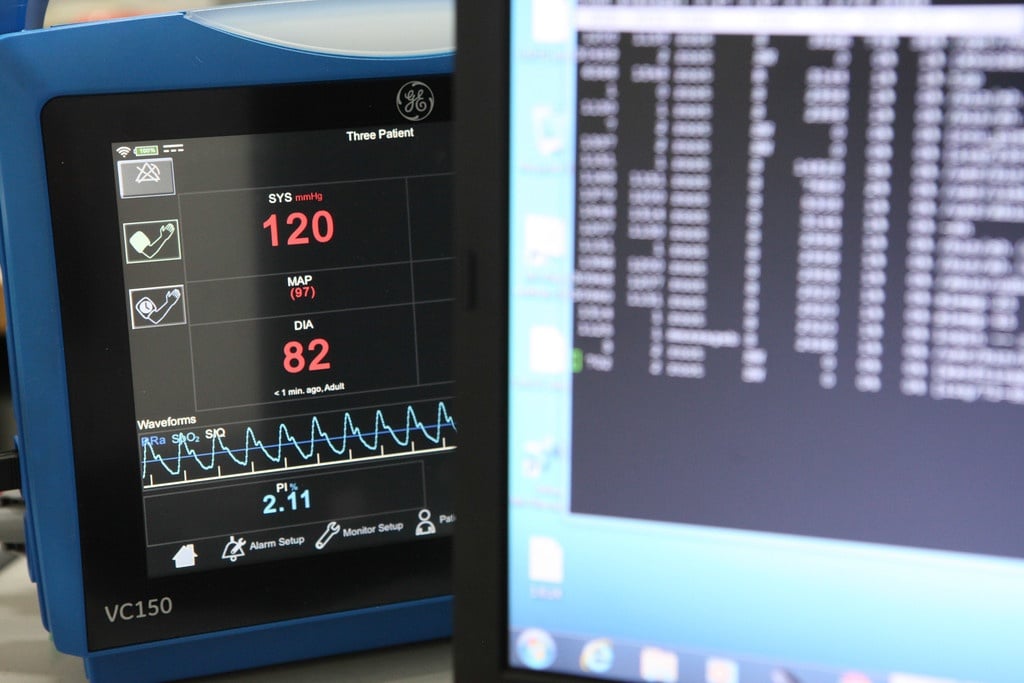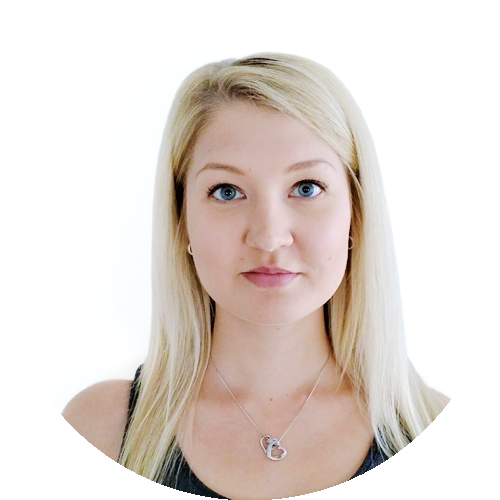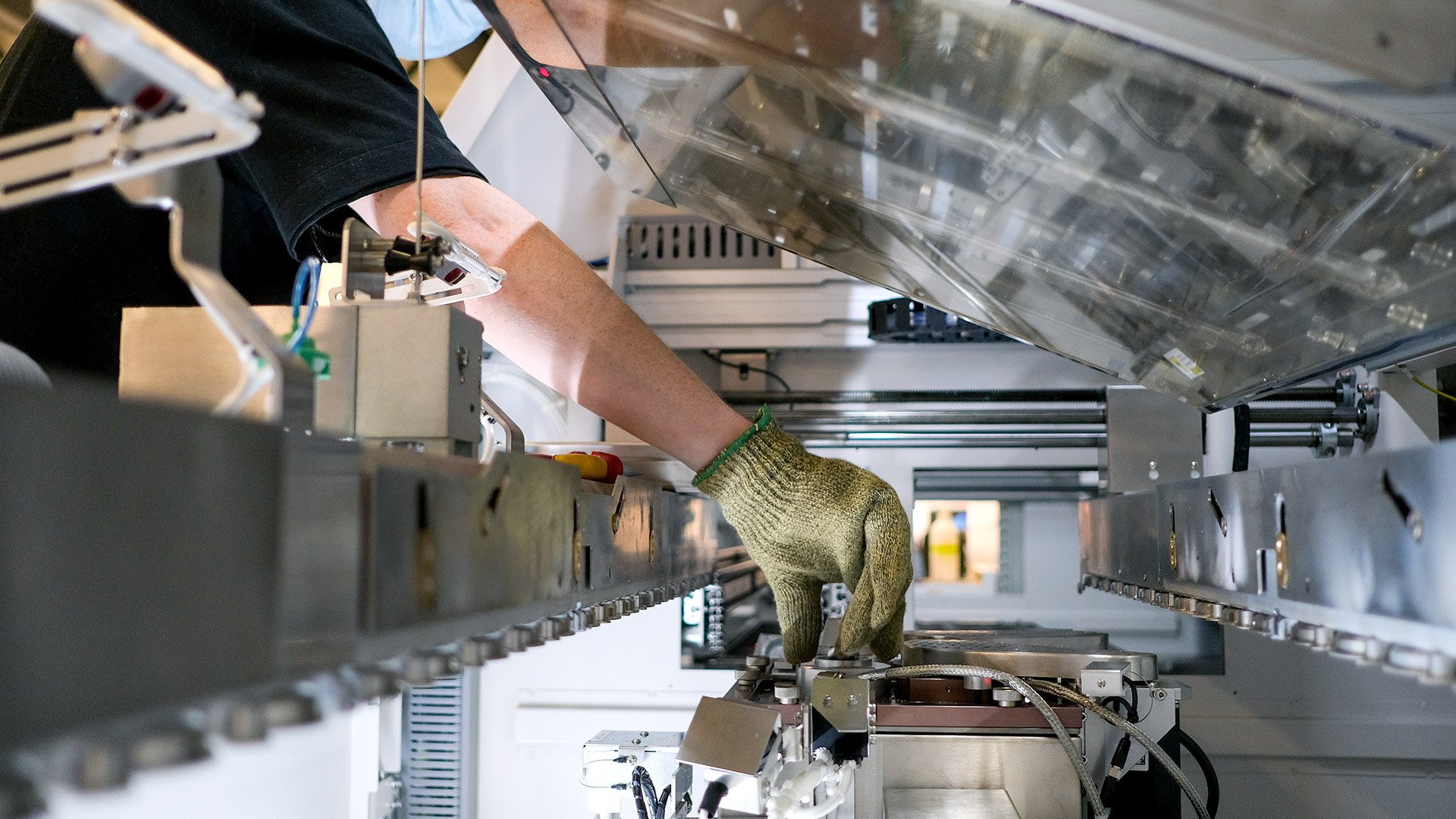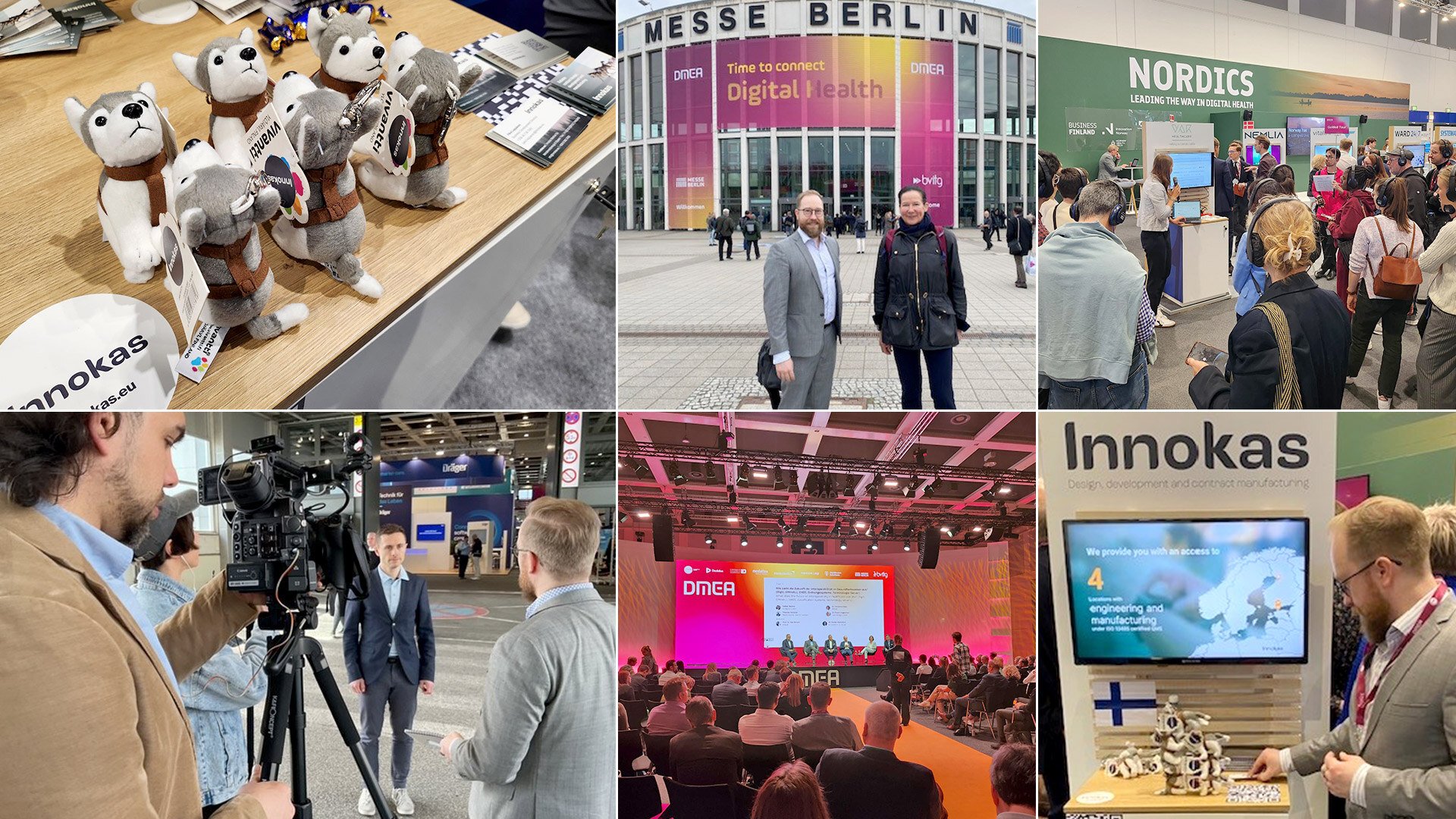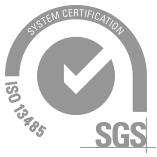Healthcare technology is one of the largest high-tech export segments of Finnish industry, and the industry continues to grow strongly year after year. In addition to growth, development is also taking place in the industry itself due to various global trends. One of these trends is software, which is becoming more and more important part of medical devices now and in the near future. Thus, Innokas MedTech Design Studio wants to continuously reinforce its in-house SW development and test automation know-how and expertise.
Healthcare technology can be seen as increasingly complex business environment. Both the constantly changing jungle of rules and regulations but also the trend where everything is getting much more complicated have an effect on this.
“The complexity is caused mainly by digitization as new kinds of technologies are developed even more rapidly and the impact of software is growing in medical devices. In addition, the user experience and safety issues are even more crucial nowadays”, ponders Antti Siipola, who is working as Head of SW Development and Test Automation at Innokas Medical. He leads Innokas’ SW and Test Automation team and is also responsible for the overall SW competence development, tools and processes.
Due to his strong background within software development and his current role at Innokas, he sees the SW field in the medical device industry fascinating. The importance of software, its development and integration into medical devices is growing trend in the field.
“The software is becoming more crucial part of medical devices, and number of devices using software in patient treatment is increasing all the time. Additionally, wireless as well as connectivity features in future medical devices will increase even further”, Siipola discusses.
“Thus, we need to be able to develop even more complex and easy-to-maintain and -test software in the future, which meets the growing regulatory requirements as well as our customers’ needs. And when taking into account the fact that the role of IoT, AI and data analytics will become more crucial part of medical device industry in the future, we’d say that this is a very complex but interesting equation to solve”, he continues.
While software improves, e.g., the usability and data processing, it brings a whole new range of risks and safety requirements to the field. It’s quite clear that keeping up with the global competition requires continuous development work from companies.
Developing software for regulated medical devices requires considerable expertise – and the development work for it
To keep up with the global competition, Innokas MedTech Design Studio has continuously reinforced its in-house SW development and test automation know-how. The existing trends and customers’ current and future needs are being taken into account in both development work and recruiting.
“We have strategically concentrated on continuously developing our software development and test automation know-how during the past few years. Our goal has been - and will be - in building and developing our know-how and expertise as well as expand our competence pool. By this, we want to support Innokas’ competitiveness and growth in international markets”, discusses Jenni Tuulos, Head of Design Studio at Innokas Medical.
“We have, for example, significantly developed our software testing processes, tools and working practices in recent years. We have recruited new professionals also; during this year, altogether 6 new specialists have joined our SW development and Test Automation team. We will actively keep our eyes open to find new talents, too”, Tuulos continues.
The latest recruitments have increased Innokas’ SW development and Test Automation team head count to 25 employees. Siipola wants to point out that recruiting new talents in the healthcare technology industry may require more structured introduction phase than in other industries; the development of software for regulated medical devices differ substantially from software developed for, e.g., consumer electronics. This is because in medical device industry, software must meet all regulatory requirements set by the authorities to get the marketing authorizations for the product.
”The regulations governing healthcare technology are strict and compelling. In addition to recognizing and taking the needs of both our customers and end users into account, the regulatory requirements are something that must be taken care of already in the very early phase of the design work. This will ensure more agile development cycle as a whole, as the devices are more difficult and expensive to be redesigned if the product is already close to launch - which naturally has an impact on the budget that might be exceeded and launching schedule will be overdue”, Siipola discusses and continues:
“It’s clear that developing software for regulated medical devices requires considerable expertise – and the continuous development work of it.”
There is a high demand for programmers
In addition to healthcare technology, software has also taken over other industries as well. That's why software experts are said to be in a high demand – in many industries.
”Even when there is a high demand for software experts in recruitment markets, attracts healthcare technology both experts with strong background as well as recently graduated talents to work in the industry. The medical device software development projects are very diverse and features very interesting and challenging tasks, which surely have an effect. Additionally, we’re working with meaningful tasks, as when we’re developing software in the medical device industry, it aims at diagnosing and treating patients' illnesses - and thereby improving the quality of life of peoples’”, Tuulos ponders.
The same feels Albert Spoljaric, who came to work at Innokas in the spring this year; interesting, challenging and versatile working tasks are something that have positively surprised him from the very beginning.
“I’ve been working at Innokas only for 6 months now, but already now I’ve been able to participate in versatile work tasks related to medical device software development. In addition to basic coding, I’ve been able to work within data analytics and IoT as well as build and develop demo environment and proof of concept to new kind of virtual hospital concept. Additionally, I’ve also been able to work in customer interface through various development projects I’ve worked in. We’ve also built and developed our ways of working and practices together with our Design Studio team”, he tells.
Spoljaric, who is also working on his doctoral dissertation in neurosciences at the University of Helsinki, is particularly pleased with the responsibility and independence that the Innokas working community offers to its employees. Additionally, he finds it very important that he has had the real opportunity to influence things at Innokas.
“Healthcare is something that has always interested me. When I was younger, I was studying nursing and worked as a nurse during the summertime. After that, I worked at the University of Helsinki in neuroscience research for almost six years. Through my research work I became interested in data analytics and completed a training program in programming before I started to work at Innokas”, Spoljaric tells and continues:
“I’ve liked working at Innokas very much! We have very good team spirit here at Innokas and our working community and the working tasks themselves are very inspiring. Working at Innokas has further strengthened my desire to work in the healthcare technology industry.”
Digitization revolutionizes the future of patient care
In addition to software, digitization is something that will create new kinds of opportunities for future healthcare. Spoljaric says that he is extremely excited about the future in the field, as he sees the role of data analytics, which he is especially interested in, will have a big role in revolutionizing healthcare.
”I believe that the digitization will affect on that a whole new kinds of solutions for taking care of and treating patients will be developed in the future. Especially data analytics, AI and machine learning will have a huge impact on this”, he ponders.
In addition to developing the company’s own skills related to these competence areas, Innokas is having an expert partner as Serres Group launched a new cooperation company in Sweden last spring. Cubist IT AB is acting as an independent subsidiary of Serres Group focusing on data driven solutions for tomorrow’s healthcare. Tuulos sees clear synergies in the subsidiary like this.
“This new Swedish company, launched by Serres Group, is a perfect match to our strategy”, Tuulos ponders.
“In cooperation with Cubist, Innokas will be able to offer our customers even better support now and in the future, as Cubist completes Innokas’ wide design and development competence pool with their deep specialist competence in Data analytics, AI and machine learning. Now we’re able to put even more focus on staying ahead on the digital transformation in healthcare”, she concludes.
In addition to Spoljaric, Zahra Giyahi (Engineer, SW Testing), Eino Lipiäinen (Senior Engineer, Software), Jukka Leinonen (Project Manager), Heikki Niemi (Engineer, Mechanics) and Marko Ollikainen (Specialist, Electronics) have joined Innokas Medical’s Design Studio team during the past 6 months.

